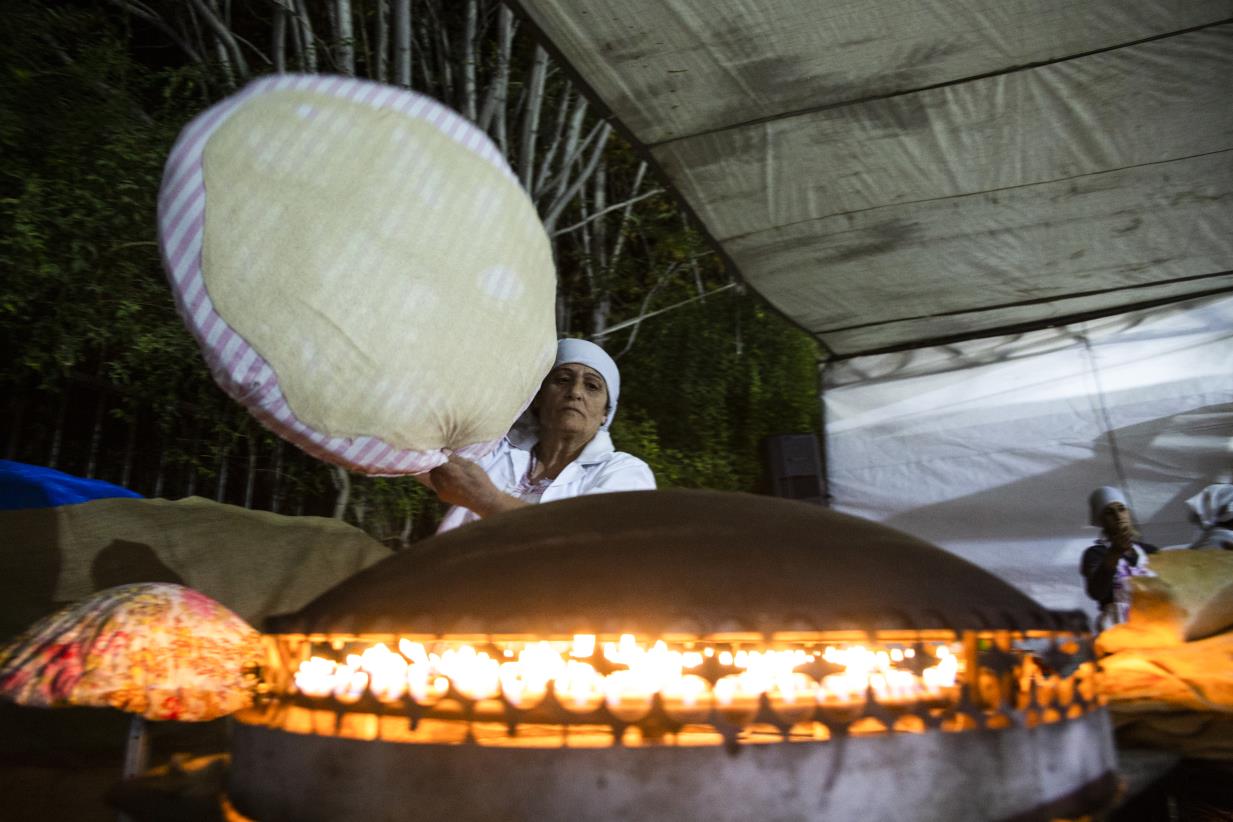“So much to be done” to improve agriculture in Syria

©FAO/Syria- Developing livelihoods to support women-headed families has become a significant priority for FAO and several donor entities in Syria.
20 October 2019 - Damascus: FAO's Assistant Director-General and Regional Representative for Near East and North Africa, Abdessalam Ould Ahmed, has conducted a two-day visit to the Syrian Arab Republic to review the agricultural sector food security situation in the country; to discuss with FAO counterparts the Syria's pressing needs in sustainable development. Ould Ahmed also comes in support to the FAO staff in the field; in relevance to the organization's regional initiatives' scheme.
In his meetings with the Ministry of Agriculture and Agrarian Reform, Ould Ahmed covered the development of livestock programmes; women's empowerment to support livelihood development through the agri-food systems, with close attention to food safety, marketing and access to finance; and the improvement of nutrition education. He also stressed natural resources and water scarcity as a regional challenge that will cause reduction of food production if partners do not plan to use effective technologies to reduce agricultural water demand. In the case of Syria, the government intends to cut consumption by 3 billion cubic meters per annum but recognizes that the country needs to develop the human capacity and monitoring systems to achieve that target.
"The challenges are considerable, the violence has taken a heavy toll on people's lives, on the country and the society as a whole. Considerable efforts are needed to improve the food security and agricultural situation in Syria and to sustain peace and stability," highlighted Ould Ahmed.
Besides the concerned ministries in Syria, the Regional Representative also paid a courtesy visit to the Deputy Foreign Minister and met with the Governor of Rural Damascus. At the United Nations' level, Ould Ahmed met with the country teams of World Food Programme (WFP) and the United Nations for Development Programme (UNDP), as well as holding a staff meeting with FAO Damascus office to discuss ways of improving support from the regional office.
Security improvement allows agriculture development
Ould Ahmed was adamant on the significance of a now more resilient Syria, compared to previous years, but there's a lot to be done to better the situation in the country.
"The improvement in the security situation in Syria is noticeable when compared to my last visit in 2015 - it is visible even in the streets of Damascus. The farmers are now more able to access their lands; thanks to good rains, and seed distributions, the 2019 wheat harvest reached 2.2 million tonnes compared to the previous season total of around 1.2 million tonnes. Yet despite this improvement, we are still far from achieving the level of food security which prevailed before the crisis," expressed Ould Ahmed. There are still 6.5 Millions food insecure people in Syria and thousands of farmers have been displaced from their land. Farmers in Syria are in need of more support to produce enough food for Syrian people ; they need effective irrigation systems, sustainable quality inputs and access to information and training. The improvement in the security situation provides a good opportunity to invest in agriculture to build farmers' resilience and sustain peace and stability, in particular in areas such as Deir Ezzor, Daraa, Raqqa where Peace has recently been restored he added.
Women-headed households are an increasing phenomenon
Developing livelihoods to support women-headed families has become a significant priority for FAO and several donor entities in Syria.
During his visit to Damascus, Ould Ahmed also managed to visit the annual Rural Women's Products Fair, which took place in Tishreen Park – Damascus city. More than 160 rural women from across Syria have come together to promote and sell their various traditionally-produced food items, such as cheeses, jams, honey, olive oil, pickles, dry fruits and more, besides other handmade items.
The Minister of Agriculture and Agrarian Reform, His Excellency Ahmed Al Qaderi accompanied Ould Ahmed on his visit to review together one of FAO's partnership achievements: the recently-established food processing units that benefit more than 80 women headed-households in Rural Damascus, Homs and Hama Governorates to produce authentic food items based on health and quality standards.
In addition to providing equipment to women's groups, FAO has also delivered essential training on marketing, book-keeping, Good Agriculture Practices, standardized food processing and safety, branding and positioning, to help ensure that the women's quality products can compete in the market.
New policies to face new challenges
The crisis in Syria has had a significant impact on the agriculture sector and on the food system in general. In considering how to support recovery of the industry, there is an opportunity to review and adjust a range of agriculture policies. The Regional Representative expressed the view that there are many steps which must be taken to improve the agriculture sector in Syria, from a policy perspective. Improved analysis and assessment could help in modifying agriculture policies and regulations and help promote sustainable natural resource use. Public support and incentives can ensure that all farmers, particularly the most vulnerable, have access to the essential services and know-how to achieve sustainable agriculture, and contribute to national efforts towards the Sustainable Development Goals 2030, and SDG 2: Zero Hunger in particular.
Contact
FAO Office in Syria
Salma Hakki
Communication Officer (Syria)
(+963) 958002536
FAO Regional Office for the Near East and North Africa
Mariam Hamed Hassanien
(+20) 1007335492
